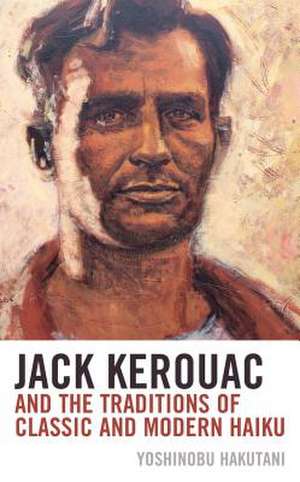Jack Kerouac and the Traditions of Classic and Modern Haiku
Autor Yoshinobu Hakutanien Limba Engleză Hardback – 13 dec 2018
Preț: 685.09 lei
Preț vechi: 889.74 lei
-23% Nou
Puncte Express: 1028
Preț estimativ în valută:
131.11€ • 142.36$ • 110.13£
131.11€ • 142.36$ • 110.13£
Carte tipărită la comandă
Livrare economică 23 aprilie-07 mai
Preluare comenzi: 021 569.72.76
Specificații
ISBN-13: 9781498558273
ISBN-10: 1498558275
Pagini: 232
Dimensiuni: 152 x 229 x 22 mm
Greutate: 0.5 kg
Editura: Rowman & Littlefield
ISBN-10: 1498558275
Pagini: 232
Dimensiuni: 152 x 229 x 22 mm
Greutate: 0.5 kg
Editura: Rowman & Littlefield
Notă biografică
Descriere
This book explores the influence of Buddhist ontology, Zen, and Confucian philosophies, as well as Jack Kerouac's own experiences in wandering and meditating in the fields and on the mountains in America, on the development and composition of his haiku.
